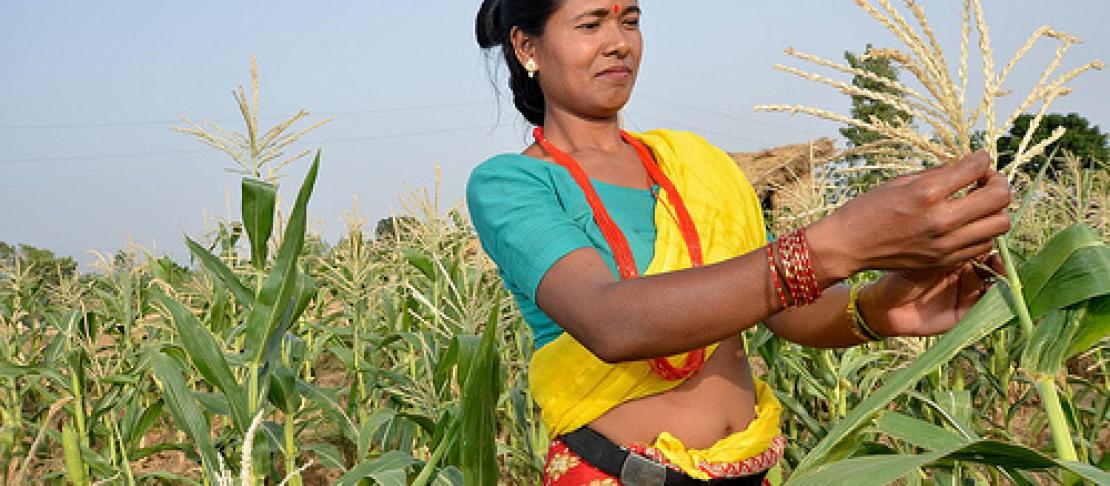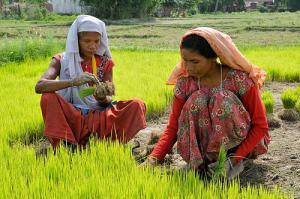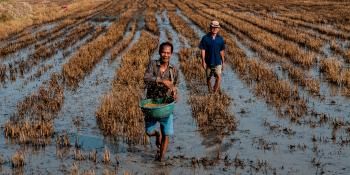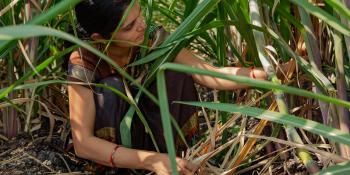Making sure both men and women benefit from climate and agriculture research

One of the main principles of the work of the CGIAR Research Program on Climate Change, Agriculture and Food Security (CCAFS) is that agricultural production and resource management under climate change demand new ways of thinking about risk, about vulnerability and about resilience.
It requires us to question what is needed in terms of policies, institutions, governance to support these changes. Unfortunately, many research efforts focusing on climate change issues do not take gender considerations into account. We’re therefore not getting the full story!
Without having the full knowledge reflecting both women and men's needs and constraints, actions to enhance climate change adaptation will be skewed. This means that there is a real risk that we not only leave women behind, but also hinder efforts for broader development.
To change the status of the situation, CCAFS researchers worked on getting Participatory gender-sensitive approaches for addressing key climate change-related research issues - Evidence from Bangladesh, Ghana, and Uganda, a working paper that documents efforts and evidence on how gender can be better taken into account, particularly within climate change and agriculture research. 
While CCAFS is a research program that addresses agriculture in the context of climate variability, climate change and uncertainty about future climate conditions, CCAFS is also "particularly committed to improving the likelihood that the knowledge that is generated will result in actions that contribute to sustainable poverty reduction. And this work on gender represents well our efforts to do just that,” states Patti Kristjanson, Leader of the Linking Knowledge to Action theme, and co-author of the Working Paper.
The back story
The blog piece Bringing gender into climate change adaptation, highlights that CCAFS "sees gender-sensitivity as crucial to achieving climate smart agriculture. Due to the lack of research on women’s as well as men’s roles, needs and resources, CCAFS aims to mainstream gender issues into climate smart agriculture through capacity building and research, so that women can participate and benefit to the same extent as men”. CCAFS is therefore addressing gender dimensions in its current work with several initiatives that put gender differences within the climate change adaptation and mitigation work on the agenda.
One these initiatives saw CCAFS join forces with the UN Food and Agriculture Organization (FAO) to explore, test and refine a range of existing participatory research tools felt to be particularly useful for addressing several gender and climate change research questions. Emerging from this effort was a training guide entitled “Gender and Climate Change Research in Agriculture and Food Security for Rural Development”.
In an attempt to be further confident with the approaches outlined in the Training Guide, a series of activities were carried out by experienced research teams to field test three major groups of tools from the manual in pilot sites in Bangladesh, Ghana and Uganda, including:
- Whether women were able to participate and benefit from the farmer-to-farmer exchanges to be able to learn about climatic conditions similar to what their areas are predicted, by scientists, to have in 2030 and beyond, a method known as ‘Climate analogues’
- How weather-related information is accessed and used differently by men and women, and
- What climate-smart practices are being adopted by women and men, and to what degree they are different for women versus men with respect to access and benefits.
In testing these three tools, some interesting results and lessons emerged:
According to the paper, "the results of testing the climate analogues revealed that the farmer-to-farmer visits which form a major part of this method will be more challenging and problematic for women than men". Mr. Jesse Naab, a Senior Research Scientist at the Savanna Agricultural Research Institute in Ghana, tested the guide and observed that “women travel less frequently and to nearer locations than men do, due to household and farming obligations". Therefore, it is important that the "design of interventions, such as farmer-to-farmer exchanges, needs to take such realities into account if they are to benefit women as well as men”. An interesting lesson for this method is that more innovative means of sharing the knowledge from the climate analogue sites needs to also be explored, in order to benefit women, and also men, who cannot travel. Some initial ideas that have been explored are the use of mobile phones, films and presentations at central locations already visited by women and men, for transmitting this knowledge.
The research on the weather-related information showed that although there were differences in how people from various sites – men, women and young people - accessed weather information, there were a lot of commonalities. In general, people most often relied on indigenous knowledge. Few are accessing longer-run seasonal weather forecasts, and even for the daily weather forecasts few understand or, even worse, trust them. This suggests that as projects seek to improve the ways in which weather-related information is provided and accessed, it will be particularly important to be sensitive to issues of access, technology and language that differ for men and women.
To support the adoption of climate-smart agricultural practices it is key to understand that labour is differentiated by gender. Therefore the labour demands of the various practices/options need to be taken into consideration for new practices to be adopted and for women as well as men to benefit from them. Non-governmental organizations and government extension agents were found to play a key role in providing agricultural information and advice to both men and women. Therefore, it is important that their capacities and knowledge base be strengthened so that they can play that key role in enhancing adoption by both men and women.
What will the results from the paper mean?
Through the findings and lessons learned in the study, the team was able to refine the research methods and improve the training guide. This will then be used by CCAFS researchers and development partners to jointly design further ‘action research’ that tackles some of the challenges identified. When asked how the improved gender training manual will be useful for organisations, Dr. Florence Birungi Kyazze, a lecturer at Makerere University in Uganda, and co-author of the Working Paper, propose that: “The different tools provide frameworks that enhance the segregation of gender data and information, and this informs development agencies on the appropriateness of actions and strategies to equitably address challenges that men and women face in relation to climate change, agriculture and food security.” The whole story is now starting to unravel.
More information about our gender work can be found here.
Nadia Manning-Thomas is a Knowledge Sharing in Research Specialist- Consultant CGIAR Consortium Office. To get more updates on our research on gender, follow us on Facebook and Twitter @Cgiarclimate.



